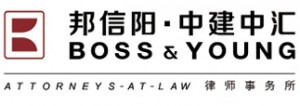“Dejure investment, de facto loan” is a common means whereby an investor provides financing to a real estate enterprise. In brief, the investor establishes a dedicated asset management plan, purchases equity of the project company held by the real estate enterprise (the financed party), specifies the investment term and fixed returns, and once specific conditions are satisfied, the financed party buys back from the investor the equity of the project company originally held by it. To complete such a transaction, the entities to the transaction execute a series of transaction documents, including an investment framework agreement, equity transfer agreement, claim transfer agreement, capital increase agreement, equity buy back agreement, etc. However, in judicial practice, whether the legal relationship created by the “de jure investment, de facto loan” transaction constituted by these transaction documents is an “actual equity transfer” or an “equity transfer in name but a claim-debt relationship arising from a loan in fact” is usually the main focus of the dispute.

YANG WENJUN
邦信阳中建中汇律师事务所合伙人
Partner
Boss & Young
Determining the equity transfer act. The different means of expression in the transaction documents will result in different determinations of the nature of the equity transfer: either the court recognizes the validity of the equity transfer act, finding it a normal means of financing by enterprises (e.g., the equity transfer dispute between Luen Tai Group Limited and Anhui Expressway Holding Group in 2013); or the court finds it to be a lending act (e.g., the contract dispute between New China Trust and Zhucheng Jiangfeng Real Estate Development in 2014).
In analyzing the nature of an equity transfer act, it is necessary to conduct the analysis by taking into account numerous factors, such as the percentage of equity transferred, control of the company, the arrangement on returns, the equity transfer price, whether there is a provision of security, the negotiations for the contract, etc. These are also major provisions to which lawyers need to pay attention when drawing up the transaction documents.
Examining the equity buyback design. The “de jure investment, de facto loan” transaction documents will set out a provision whereby when certain conditions are satisfied, the financed party will buy back the equity (i.e., the buyback clause). When examining the validity of this clause and analyzing the basis on which the transaction parties’ obligations can be performed, it is necessary to analyze whether the buyback clause is a true expression of the intent of each party and whether it violates prohibitive provisions of laws or regulations.

CHEN XIAOFENG
邦信阳中建中汇律师事务所律师助理
Paralegal
Boss & Young
For example, in the contract dispute New China Trust v Beijing Shiguang Real Estate Development and Xing’anmeng Shiguang Real Estate Development, the court held that the actual details of the transaction were the trust company investing in the project company by acquiring equity and selling it at a fixed time, or transferring trust asset units or liquidating the property of the project company at the prescribed time, and the investment purpose was to develop the real estate project so that the trust company was to receive a fixed monetary return upon maturity (return on equity or interest). The executed cooperation agreement and other relevant agreements were a true expression of intent, did not violate the prohibitive provisions of laws or regulations, and the trust company performed its contractual obligations, such as making the investment and acquiring the equity, as agreed. However, once the term specified in the contract expired, the financed party failed to buy back the equity and return the financing proceeds and returns as agreed, constituting a breach of contract.
Analysis of transfer by the investor of the acquired equity. If the original equity transfer is found to be valid, the investor naturally has the right to dispose of the equity, as by a transfer; if it is found to be the provision of security in a loan legal relationship, the investor is a shareholder only nominally and is not entitled to dispose of the equity, as by transfer. The question as to whether the transferee can secure the equity requires a specific analysis.
Pursuant to the first paragraph of Article 25 of the Provisions of the Supreme People’s Court on Several Issues Concerning the Application of the PRC Company Law (3), “If a nominal shareholder transfers, pledges or otherwise disposes of the equity registered under his name and the actual investor requests that a determination to the effect that such disposal is invalid be rendered on the grounds that it is he that has the actual rights in the equity, the People’s Court may handle the matter with reference to Article 106 of the Property Law” and, pursuant to Article 106 of the Property Law, “If a person without a right of disposal transfers immovable property or movable property to a transferee, the owner shall have the right to recover such property. Unless otherwise specified in law, the transferee shall secure the ownership of such immovable property or movable property if: (1) he acquired such immovable property or movable property in good faith; (2) the property was transferred at a reasonable price; and (3) if the transferred immovable property or movable property requires registration in accordance with the law, such registration was carried out or, if registration is not required, the property has been delivered to the transferee”.
When determining whether the new transferee can secure the equity transferred by the nominal shareholder, the analysis must be conducted on the basis of the following three factors in order:
(1) whether the equity was acquired in good faith: i.e., determining whether there is a connected relationship between the transferor and the new transferee, whether there exists collusion in bad faith, etc.;
(2) whether the transfer price is reasonable: when determining this, one can take into account the equity share, the project company’s liabilities, etc. and a price of less than RMB1 per share is not necessarily unreasonable;
(3) whether the new transferee carried out amendment of business registration after acquiring the equity.
The complexity of the structure for a “de jure investment, de facto loan” transaction makes it difficult to simply determine whether it is an “actual equity transfer” or a “claim-debt relationship”. When processing the relevant documents or handling a legal action, the lawyer needs to draw up the relevant provisions or prepare to respond to the suit based on the true expression of intent of the parties to the transaction and the actual interests of the client, and should avoid blindly and mechanically applying templates or referring to past precedents.
Yang Wenjun is a partner and Chen Xiaofeng is a paralegal at Boss & Young
中国上海市黄浦区中山南路100号金外滩国际广场12-15楼 邮编:200010
12/F-15/F, 100 Bund Square, 100 South Zhongshan Road, Huangpu District, Shanghai 200010, China
电话 Tel: +86 21 2316 9090
传真 Fax: +86 21 2316 9000
电子邮箱 E-mail:
yangwenjun@boss-young.com
chenxiaofeng@boss-young.com






















